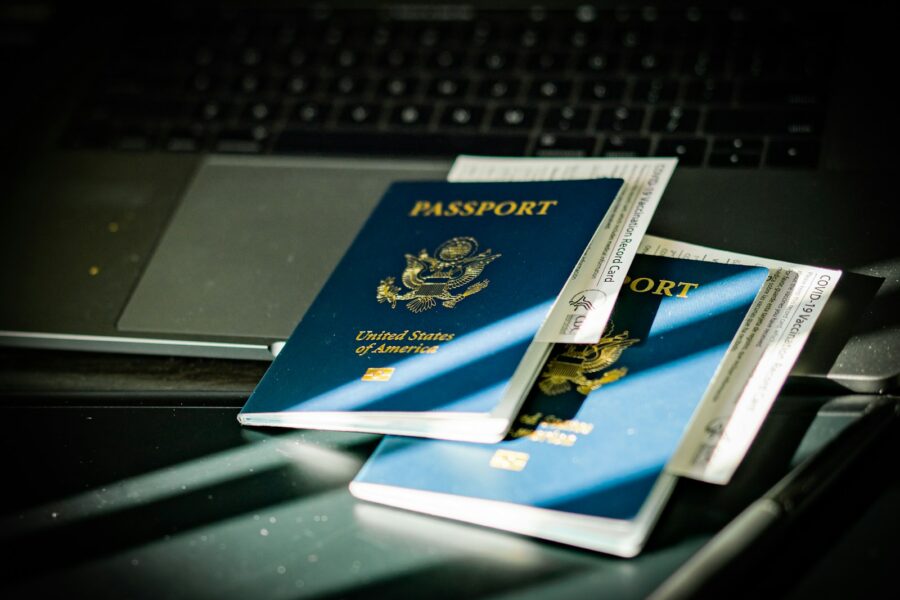What is Health and Care Worker Visa?
In my journey of unraveling the complexities of UK immigration, I’ve come across a pivotal element that stands out for professionals in the health and care sector: the Health and Care Worker Visa. This visa is a cornerstone for those aiming to contribute to the healthcare sector in the United Kingdom, reflecting the country’s commitment to attracting overseas talent in these critical fields.
The Health and Care Worker Visa is designed specifically for medical professionals, including but not limited to, doctors, nurses, and allied health professionals, who wish to work in the NHS, an NHS supplier, or in adult social care. This visa acknowledges the essential role these professionals play in maintaining and enhancing the health and wellbeing of communities across the UK.
Eligibility hinges on securing a job offer from a UK employer within the health and care sector. Also, this employer must be a Home Office-approved sponsor, signifying a layer of security and legitimacy for prospective applicants. The process emphasizes the need for applicants to demonstrate their qualifications and professional skills, aligning with the UK’s standards for healthcare workers.
One of the significant advantages of the Health and Care Worker Visa is its streamlined application process, aimed at reducing bureaucratic hurdles. It not only offers a faster route into the UK but also comes with reduced visa fees, a testament to the country’s appreciation of healthcare workers’ contributions.
Applying for this visa also means that applicants can bring their family members with them, a provision that underscores the inclusive approach of UK immigration policies. This is particularly appealing for those who don’t want to face the prospect of long separations from their loved ones.
Exploring the prerequisites and application steps for the Health and Care Worker Visa can be daunting. But, with the right information and guidance, it’s a pathway that opens doors to invaluable professional experiences in the United Kingdom. Throughout this process, the key is to ensure all documentation aligns with the stringent requirements set forth by the UK’s immigration authorities, a step I’ve found to be crucial for a successful application.
Importance of Health and Care Worker Visa
When I embarked on my journey through the intricate pathways of UK immigration, I uncovered the pivotal role of the Health and Care Worker Visa. This visa doesn’t just open doors for healthcare professionals looking to advance their careers; it’s a cornerstone of the United Kingdom immigration system, designed to address the critical healthcare workforce needs.
This visa supports the NHS’s sustainability, ensuring that hospitals and care homes across the UK are staffed with qualified professionals. It’s fascinating to note how this visa streamlines the migration process for nurses, doctors, and allied health professionals. The United Kingdom’s immigration strategy recognizes the invaluable contributions these individuals make to public health and community care.
Here’s a closer look at why this visa is essential:
- Addresses Staff Shortages: The UK faces continuous challenges in filling healthcare positions. This visa allows the NHS and care sectors to recruit globally, ensuring that patient care standards are not compromised.
- Economic Contributions: Health and care workers contribute significantly to the economy. Their employment supports not just the health sector but also stimulates growth through spending and taxation.
- Family Inclusion: The visa’s provision for family members enhances its appeal, encouraging more professionals to consider relocation. This aspect nurtures a sense of community and support for workers far from their home countries.
Given the strategic importance of health and care workers within the UK’s healthcare system, the visa serves as a critical tool in maintaining a robust healthcare workforce. My deep jump into United Kingdom immigration revealed that the Health and Care Worker Visa isn’t merely a passageway for professionals; it’s a testament to the UK’s commitment to healthcare excellence and diversity. As healthcare professionals contemplate relocation, understanding the significance of this visa can illuminate the pathway to a rewarding career in one of the world’s most esteemed healthcare systems.
Requirements for Health and Care Worker Visa
Exploring through the UK immigration process can be daunting, but I’m here to break down the essentials of securing a Health and Care Worker Visa. This visa plays a pivotal role in the United Kingdom immigration strategy, aimed at bolstering the NHS and health care services with skilled professionals.
The Must-Haves
To qualify for this visa, there are several boxes you’ll need to tick:
- Job Offer: First and foremost, you must have a valid job offer from the NHS, a social care provider, or a company that provides medical services to the NHS. This job offer should be for a role that’s listed on the eligible occupations list, ensuring the position meets the visa’s criteria.
- Certificate of Sponsorship: Your employer must provide you with a valid Certificate of Sponsorship that has detailed information about the role you’ve been offered in the UK.
- Salary Threshold: The role must pay a minimum salary, which typically aligns with the type of work and experience level. This ensures that workers are compensated fairly while contributing to the UK’s economy.
- Knowledge of English: Proficiency in English is crucial. You’ll need to prove your ability to communicate effectively, a requirement that guarantees integration and efficiency in your role.
Additional Criteria
Beyond the primary requirements, there are additional criteria I found essential in the process:
- Tuberculosis Test Results: If you’re from a country where this is required, you’ll need to provide these medical results.
- Financial Proof: Showing you can support yourself and any dependents during your stay without public funds is crucial. This demonstrates financial independence and sustainability.
By meeting these requirements, you’re not just stepping closer to a career in the UK; you’re embarking on a journey in one of the most revered healthcare systems globally. The process of UK immigration, particularly for health and care workers, is designed to streamline the entry of essential personnel, directly contributing to the robustness of the Kingdom’s healthcare services.
Benefits of Health and Care Worker Visa
As someone deeply engrossed in the intricacies of UK immigration, I’ve come to appreciate the advantages of obtaining a Health and Care Worker Visa. This visa type stands out as a beacon for professionals aiming to contribute to the United Kingdom’s healthcare sector. Let me walk you through the key benefits that underscore why this visa is a crucial pathway for many.
Firstly, priority processing is a significant perk. In the area of United Kingdom immigration, time is often of the essence. Health and Care Worker Visa applicants usually enjoy faster processing times compared to other visa categories. This expedited approach is a testament to the UK’s commitment to bolstering its healthcare workforce without unnecessary delays.
Another cornerstone benefit is the access to the National Health Service (NHS). Upon securing this visa, you and your dependents gain the same access to NHS services as UK residents. This access is not just about healthcare provision; it’s about integrating into a system renowned for its quality and comprehensive care.
Also, this visa category offers a reduced Visa Application Fee and exemption from the Immigration Health Surcharge (IHS). Considering the financial aspect of migration, these exemptions and reductions substantially lower the cost barrier for healthcare professionals wishing to work in the UK. It’s an acknowledgment of their valuable contribution and an incentive to encourage more skilled workers to move.
The pathway to permanent residency cannot be overstated. After a specified period of working in the UK under a Health and Care Worker Visa, you’re eligible to apply for Indefinite Leave to Remain (ILR). This opportunity paves the way to permanent residency, offering long-term stability and the chance to fully integrate into UK society.
For those exploring the complexities of united kingdom immigration, understanding the tangible benefits of the Health and Care Worker Visa is imperative. These advantages not only help a smoother transition for international healthcare professionals but also significantly contribute to the sustainability and effectiveness of the UK’s healthcare system.
How to apply for a Health and Care Worker Visa?
Applying for a Health and Care Worker Visa, a crucial component of UK immigration for healthcare professionals, is a straightforward process once you understand the steps involved. I’m here to walk you through every phase, ensuring you’re well-prepared for your application.
First off, ensure you’ve secured a job offer from an NHS trust, a social care provider, or a company providing services to the NHS in an eligible role. A valid Certificate of Sponsorship from your employer is non-negotiable – it’s your golden ticket in the application process.
Next, English proficiency is a must. If English isn’t your first language, you’ll need to pass a Secure English Language Test (SELT) as defined by UK Visas and Immigration guidelines. This requirement underscores the importance of clear communication within United Kingdom immigration policies, particularly for roles in healthcare.
The financial requirement is another critical step. You must demonstrate that you have enough money to support yourself (and any dependents) without needing public funds. The specifics can vary, but generally, having at least £1,270 available is a good benchmark.
Applying online is the go-to method for most applicants outside the UK. During this process, you’ll need to provide several documents – your Certificate of Sponsorship reference number, proof of your knowledge of English, and a bank statement to show you have the required personal savings, among others.
Medical checks are also part of the process, including a tuberculosis test if you’re coming from a country where it’s required. While the requirements might seem extensive, each serves a purpose in ensuring successful UK immigration for health and care workers.
Remember, the UK values the contribution of international health and care workers immensely. By following these steps carefully, you’re not just moving closer to living and working in the UK; you’re also becoming an integral part of a world-renowned healthcare system.
Conclusion
Exploring the Health and Care Worker Visa process can seem daunting at first. But, armed with the right information and a clear understanding of the requirements, I’ve found it’s entirely achievable. Ensuring you have a valid job offer, meeting the English proficiency standards, and demonstrating financial stability are key steps that can’t be overlooked. Remember, thorough preparation and attention to detail when gathering your documents will smooth your path to a successful application. By taking these steps, you’re not just opening the door to new professional opportunities in the UK but also contributing to a vital sector that impacts countless lives. It’s a journey worth embarking on for those dedicated to health and care professions.


Leave a Comment